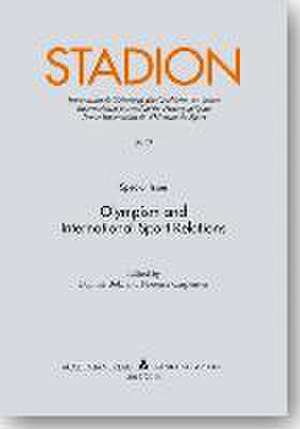Stadion. Olympism and International Sport relations
Autor Florence Carpentier Editat de Daphné Bolzen Limba Engleză Paperback – 13 noi 2014
Preț: 366.71 lei
Nou
Puncte Express: 550
Preț estimativ în valută:
70.17€ • 76.46$ • 59.13£
70.17€ • 76.46$ • 59.13£
Carte indisponibilă temporar
Doresc să fiu notificat când acest titlu va fi disponibil:
Se trimite...
Preluare comenzi: 021 569.72.76
Specificații
ISBN-13: 9783896656537
ISBN-10: 3896656538
Pagini: 316
Dimensiuni: 156 x 238 x 27 mm
Greutate: 0.51 kg
Editura: ACADEMIA VERLAG
ISBN-10: 3896656538
Pagini: 316
Dimensiuni: 156 x 238 x 27 mm
Greutate: 0.51 kg
Editura: ACADEMIA VERLAG
